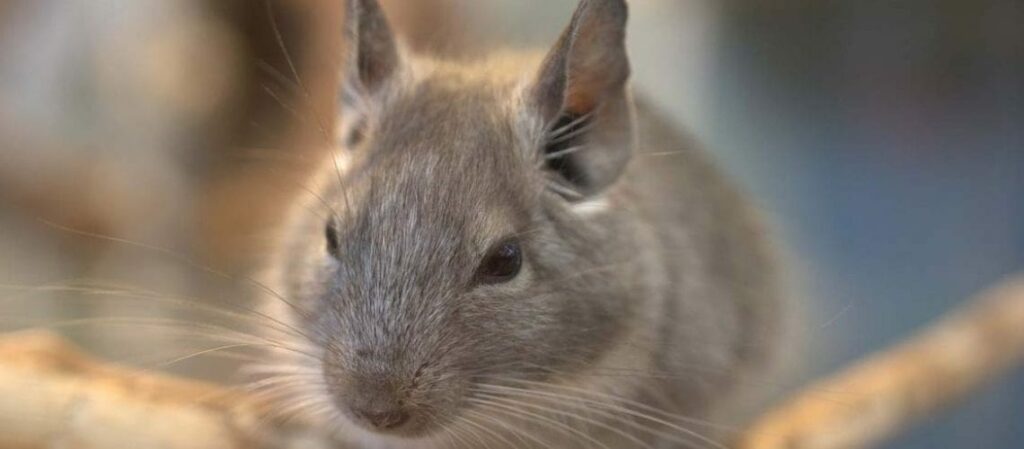Chinchillas are adorable and active small mammals with delicate skeletons who love to chew! Their lifespan ranges from 10 to 15 years. These social creatures are active primarily at night and can be difficult to litter box train. It is rare for chinchillas to bite, but cuddling is not a typical pastime. They would much rather be climbing and playing or being petted. For a dedicated owner, they make a wonderful pet!
Diet
A healthy diet for chinchillas should be high in fiber and contain little carbohydrates or sugars- breads, cereals, and nuts are not recommended. Plenty of quality timothy, brome, or bermuda grass hay should be available with small amounts of chinchilla pellets offered daily. Alfalfa or clover hay, dried fruit, and fresh vegetables make excellent treats but should be offered sparingly to prevent obesity. Any diet changes that need to be made should be done gradually to prevent upset stomach. Chinchilla’s eating habits should also be monitored as prolonged periods without eating can make them very ill.
Habitat
Because chinchillas are very active creatures, a large, multi level cage is best to allow them to run, climb, and play. For additional exercise, an exercise wheel with a smooth running surface may be purchased. A welded wire floor is recommended since chinchillas love to chew, but areas with smooth flooring should be available to rest their feet. The cage should be placed in a quiet area with humidity no greater than 40% and temperatures between 50 and 75 degrees fahrenheit. Temperatures of 80 degrees fahrenheit or greater should be avoided as they can be fatal. A nesting box for each chinchilla should be provided to sleep and take refuge from any aggressive cage mates. Wooden toys and perches as well as pumice stones are recommended to allow a safe outlet for the chinchillas’ chewing habit and keep their teeth healthy. Any potentially hazardous items should be kept away from the cage — especially electrical wires as chinchillas’ are known to chew on them. Chinchillas also require a dust bath 4 to 5 times a week. Dust baths should last for 10 to 15 minutes.
Veterinary Care
Annual wellness and oral examinations are important to catch any potential conditions early. Regular fecal checks are recommended to ensure no intestinal parasites are present. In addition, male chinchillas should be checked monthly to ensure a penile hair ring is not present. Several common medical conditions chinchilla’s can contract include dental issues, skin conditions, gastrointestinal disorders, respiratory distress, and heat stress.
